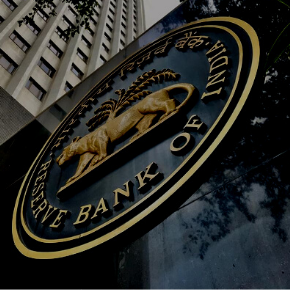Corporate Advisory

OVERVIEW
Acuity Law advises clients on various legal issues arising out of different laws, such as, matters relating to corporate governance, securities laws, capital raising, directors duties and liability, prohibition of insider trading laws, fraudulent and unfair trade practices, the Takeover Code, listing obligations and disclosure requirements, anti-trust laws, laws applicable to foreign portfolio investors, India entry strategy, foreign direct investment laws, investment by Indian companies outside India, contract law, laws relating to raising debt in Indian Rupees, external commercial borrowings, sector specific laws, such as aviation laws, insurance laws, security services laws, retail trading laws, packaging laws, consumer laws and other such laws which are relevant for the conduct of business by the client in India.
Acuity Law assists clients to incorporate business entities such as companies, limited liability partnerships, alternative investment vehicles, partnership firms, trusts, liaison offices, branch offices, project offices and other types of business entities through which business is conducted in India or presence in India is established by a strategic or financial investor.
Incorporation of Companies
The process of incorporation of companies in India has undergone several changes. These changes have been introduced as part of Government of India’s ease of doing business initiatives. Business reforms over the past several years have helped India move to 63rd position as per the World Bank Group’s Doing Business 2020 study.
This primer aims at disseminating important information on the laws and regulations governing incorporation of companies in India.
Shareholder’s Rights
The rights, duties and obligations of shareholders of an Indian company is governed by the provisions of (Indian) Companies Act, 2013 and rules framed under it (Companies Act), the articles of association of the company and shareholders’ agreement. Typically, the board of directors control and supervise the management and operations of a company. However, there are certain decisions and actions which can only be undertaken by the shareholders. This primer gives an overview of various rights of shareholders of an Indian company.
Modes of Funding
Indian entities may raise funds through different modes permissible under the Indian laws. We have tried to answer some of the common queries in relation to raising funds under various modes under Indian laws.
Corporate Governance
Here are some of the common queries in relation to corporate governance in India.
Competition Law
Globally, a competitive market is acknowledged as the best means of ensuring that consumers have access to the broadest range of services at the most competitive prices. Competition Laws are designed to promote and sustain such competitive market by removing market imperfections through appropriate regulations.
Here we deal with the principal laws and practices to regulate and promote competition in India.
Data privacy and protection
is as important as the efficient use of data and for that purpose being aware of the data protection laws that apply to an individual and the rights that a person may enjoy with respect to his data is extremely critical.
Here we cover a basic understanding of the Data protection laws in India.
Gaming Laws in India
The gaming industry has gained significant importance over the last decade with the advent of virtual and online gaming. Gaming is set to become increasingly popular.
Here we look at the laws that govern the gaming industry in India.
Intellectual Property
In this document, we discuss Indian laws related to recognition, registration, and enforcement of rights in intellectual property in India. Here we have provided an overview of Indian laws related to copyright, patents and trademarks.
Non-Banking Financial Companies
(NBFCs) are key to the India’s economy and play an important role in promoting inclusive growth in the country. NBFCs play a critical role in the core development of several sectors especially in the micro, small and medium enterprises and have been making significant contribution to wealth creation and financial support for small businesses and organizations.
Here we deal with commonly asked questions regarding laws pertaining to NBFCs.
Consumer Protection Law
Consumer protection law is one of the core aspects of a well-functioning economy as it has direct bearing on information exchange between different market players. Countries around the world have been constantly reshaping their legal regime to address various issues arising out of significant changes and evolution in commerce and industry. As part of its commitment to promote ease of doing business, the Government of India notified the new Consumer Protection Act, 2019, replacing the existing Consumer Protection Act, 1986. We have prepared a primer covering a broad overview of fundamental aspects and concepts covered under the new law.
The Micro, Small and Medium Enterprises (MSME)
are considered to be a key driver of economic growth in India. They are credited for generating the high employment opportunities while promoting overall socio-economic development and have emerged as a dynamic sector over the past decades. In 2006, the Government of India enacted the Micro, Small and Medium Enterprises Development Act (“MSME Act”) for facilitating the promotion and development of this sector which has undergone major changes in 2020. In this primer we look at the key concepts under the MSME Act.
Shareholder's Protection
Shareholders, though not in direct control of a company, are the real owners of the company. The investments made by shareholders in companies entitle them to certain rights. This primer gives a broad overview of the various protections guaranteed to shareholders under India’s corporate legislation.
The Takeover Code
strictly regulates the acquisition of shares, voting rights or control in listed Indian companies with the ultimate objective of regulating any change in shareholding or control of the company so as to protect the retail investors who have made investments in these companies. The Takeover Code seeks to ensure that these changes are undertaken in an equitable and transparent manner and in a manner which provides an exit opportunity to shareholders. In this primer we take a look at the key concepts under the Takeover Code.
Limited Liability Partnership (“LLP”)
A limited liability partnership (“LLP”) is a body corporate that provides benefits of limited liability and at the same time allows its members the flexibility to organise their internal structure. In this primer, we have covered frequently asked questions relating to LLPs.
Start-ups in India
India has one of the most robust start-up ecosystems in the world and has in the recent past contributed significantly to expand the list of Unicorn Companies. As of January 2021, it is estimated that there are around 55,000 active start-ups in India, out of which around 47,000 start-ups have been recognised by the Department for Promotion of Industry and Internal Trade (DPIIT). In this primer, we have covered frequently asked questions relating to some of the major benefits available to DPIIT recognised start-ups in India.
The Financial Action Task Force (“FATF”)
is the global money laundering and terrorist financing watchdog. The recommendations by FATF are recognised as the global anti-money laundering and counter-terrorist financing standard. India has been a member of the FATF since 2010. In this primer, we have highlighted some of the basic questions on the anti-money laundering legislation in India.
Electric Vehicles (EVs) in India
The government of India has taken a number of steps in the last few years to develop and promote the production of electric vehicles (EVs) in India. Adoption of EVs on a large scale is being seen as a one-stop solution for problems like India’s high dependency on oil imports and increasing air pollution. In this primer, we have answered a few basic questions regarding government policy and the legal framework surrounding EVs in India.
Packaged Commodities Rules
Under Indian laws, packaged commodities are required to display information such as net quantity, price, name of manufacturer, packer/ importer among others. In India, packaging of commodities is governed by the Legal Metrology Act, 2009 (“Legal Metrology Act”) and the Legal Metrology (Packaged Commodities) Rules, 2011 (“Packaged Commodities Rules”). Here we have covered the standards prescribed under the Legal Metrology Act and the Packaged Commodities Rules in relation to packaging of commodities for the purpose of distribution or sale or such other connected matters.
The Indian securities market regulator, SEBI,
is responsible for preventing insider trading in India. SEBI has, with the end goal of achieving higher standards of investor protection in the country, prescribed certain restrictions as well as compliance requirements on listed entities as well as categories of persons who may generally be in possession of unpublished information that is price sensitive in nature. In this primer, we have covered common queries in relation to regulation of insider trading in India.
Real Estate (Regulatory and Development) Authority Act, 2016 (Act)
was introduced with an objective to protect the interest of the homebuyers and ensure accountability of the promoters of the real estate project towards homebuyers and enhance transparency in the system. In this primer, we have covered common queries in relation to the Act and key points related to the registration of the real estate project and rights and duties of the promoters of real estate projects under the Act.
The Real Estate (Regulation and Development) Act, 2016
was enacted with an objective to protect the rights and interests of allottees from unlawful and illegal activities of the real estate developers and to provide a robust grievance redressal mechanism. In this primer, we have covered some common queries related to the rights of allottees of a real estate project provided under the Act.

















































